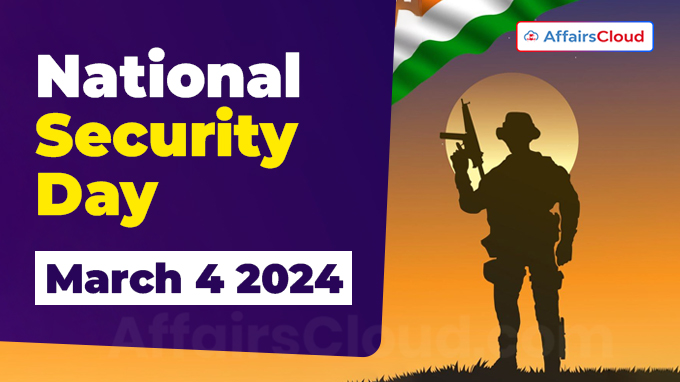 National Security Day (NSD) or Rashtriya Suraksha Diwas is annually observed across India on 4 March to honour and show gratitude to the Indian Security Forces.
National Security Day (NSD) or Rashtriya Suraksha Diwas is annually observed across India on 4 March to honour and show gratitude to the Indian Security Forces.
- Security forces include the Police, Military, Para-Military, Guards, Commandos, and other forces who are involved in maintaining the peace and security of the people of India.
History of National Security Council (NSC):
i.Former Prime Minister (PM) of India Atal Bihari Vajpayee established the National Security Council (NSC) on 19th November 1998.
ii.NSC is a federal institutional and consultative body chaired by the Prime Minister(PM) as its chairman and National Security Advisor(NSA) as its Secretary.
Note: From 1998 to 2004, Brajesh Mishra served as the first National Security Advisor.
iii.NSC of India is a 3-tiered organization, functioning within the executive office of the PM, addressing diverse concerns from politics, economics, energy, and security.
- The 3-Tiered Structure: Strategic Policy Group (SPG); the National Security Advisory Board (NSAB); and a Secretariat from the Joint Intelligence Committee (JIC).
v.Before the formation of the NSC, these activities were overseen by the Principal Secretary to the preceding PM.
National Security Advisor (NSA):
i.Ajit Doval has been the 5th NSA to the PM of India (Narendra Modi) since 2014. He is also the Chairman of the SPG of the NSC.
ii.The SPG notified in 1999, will assist the NSC and undertake among other tasks a long-term strategic Defence review.
About National Security Council (NSC):
NSA– Ajit Doval
Headquarters– New Delhi, Delhi




